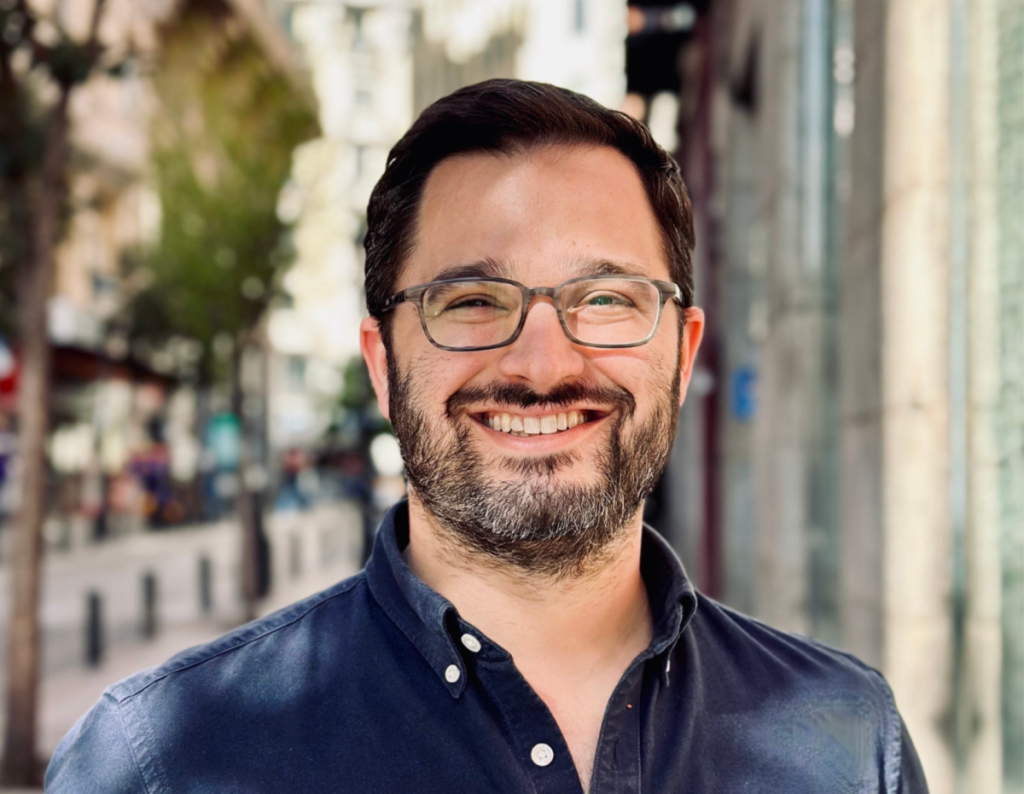It is known that the VCs move in the herds, which is why Eric Slesinger stands out a little. While most American investors chase startups or defense technological startups based in the United States, the former CIA officer is looking for technological defense agreements in Europe. In fact, Slesinger, founder of 201 Ventures, recently closed a 22 million dollar fund focused on European defense technological startups during the seed phase. His path from the development of gadgets and software for the CIA agents to become perhaps the only American VC that invests exclusively in European defense technology seems to be also prescient.
What would someone force someone to leave “the best first work of all time” to the CIA to pursue this specific ambition? As Slitesinger told Techcrunch in a recent interview on the Podcast of Striclyvc download, the answer came from identifying a critical round that many have lost. “I started because I noticed that the private sector played more and more a role in this competition that previously I really understood to be only a government for government competition,” explained Slesinger. “What has become obvious more every day is that the private sector was playing such an important role here.”
With a degree in Stanford in mechanical engineering and Harvard Business School, Slesinger’s background helped him prepare to fill the gap between defense technology and commercial initiatives. But it was his will to go against the conventional wisdom that made him interesting for investors, founders and technological journalists.
“I always liked to go where other people tend not to want to go,” Slesinger said. “That’s why I liked the CIA job so much. A couple of things that people said they were: ‘Go where others don’t go and do what they can’t do.'”
As for what the United States was missing, from Slesinger’s point of view there were three things. Firstly, “Europe has individual entrepreneurs who are equally hungry, equally convinced and intelligent as in any other part of the world”. Secondly, “European governments waited too long to rethink what the agreement on their safety meant, and therefore in reality they had not taken a critical eye towards it”. And thirdly, “Europe has been quickly seen and, in my opinion, will continue to be the site of a serious competition of gray areas”, which means activities of state or non -state actors that fall between traditional peace and clear war.
Perhaps the most surprising aspect of Slesinger’s European company was the cultural resistance that claims to have met defense investments. In 2022, after moving from the United States to Madrid, he began the European network for defense investors, who now includes entrepreneurs, investors and politicians. In an average place of 2023, Slesinger wrote about how his European colleagues VC were afraid of talking about their defense -related investments. Unlike America, he told Techcrunch, investing investing in Europe “was seen as a bang, something that should be done but that did not speak, and certainly did not speak in the company polite at the table”. (Slesinger quickly added: “I’m exaggerating a little, but there is a core of truth there.”)
He says that the cultural hesitation has led to “many founders to think about it, deciding not to build a company in space (defense)”. Now he is changing. The NATO-the First Fund of Venture Capital Multi-Sovrano in the world, supported by 24 NATO allies and launched in the summer of 2022 after the outbreak of the Russia-Ukraine war, helped. In fact, he is a significant supporter of 201 companies.
Techcrunch event
Berkeley, ca.
|
June 5th
Book now
So he obtained the attention activated by the emerging technological startups on the continent, including Helsing based in Munich, who is developing ai for use on Battlefields and is currently evaluated over 5 billion dollars from his investors. Another demanding in Slesinger’s portfolio is Delian Alliance Industries, a dress based in Athens that develops surveillance towers to detect autonomous threats. Delian has so far collected funding for seeds, but it is a hot ticket that has certainly been actively courted by VCS.
With eight investments to date, 201 Ventures focuses on technologies that face that competition of the gray area because, in Slesinger’s words, “it is happening on a large scale in Europe and for the next two decades”. These disposal of the market, he said, “if they are price inefficiencies or a government that play a wider role in a market that otherwise could, if not wanting to want a sovereign capacity … These locations of the gray area are actually a good form of Alfa”.
In addition to Delian, another of Slesinger’s bets is Polar Mist, a Swedish startup that produces maritime drones with advanced navigation skills. Other areas of interest include hypersonic and mapping of the subsoil.
A challenge in financing defense technological startups is the longest development sequence of development than traditional risk investments. Slesinger recognized this tension in his chat with Techcrunch: “If you have a 10 -year -old life cycle of life, it is a real thing that we must do things to try to accelerate or bend a little”.
Slesinger also thinks that “European companies should make more pressure in very previous phases”.
Both raise questions that his bet will repay for investors. At the same time, his early vision for a more autonomous European defense ecosystem is becoming clearer for many other investors these days while geopolitical tensions increase and Europe rethink its safety agreements.
The data published at the beginning of this year by NATO Innovation Fund and by the research group have shown that the European startups working on defense and related technology collected 24% more capital in 2024 compared to 2023, hitting $ 5.2 billion, also exceeding artificial intelligence funding. With President Donald Trump who returned to office in January and questioned the commitment of the United States for European defense, this figure is likely to climb even higher.



